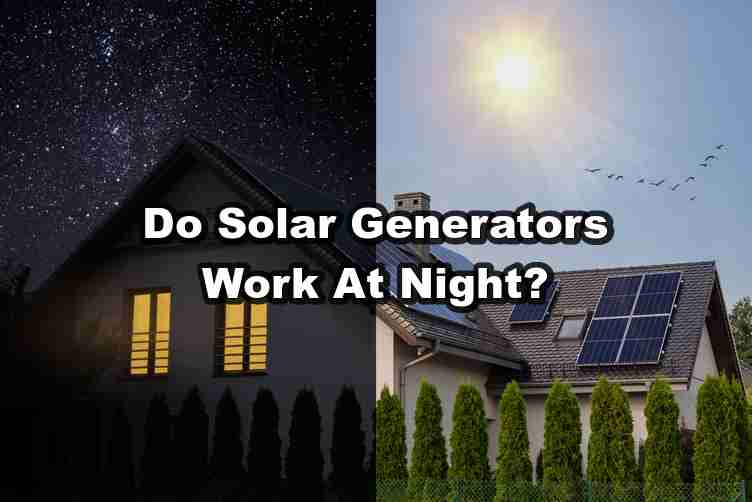Solar generators don’t work at night in terms of active solar collection, but they can still power your devices through stored battery energy.
When the sun sets, solar panels stop generating electricity since they require sunlight to produce power. However, a properly charged solar generator will continue working throughout the night using energy captured and stored during daylight hours.
The key to nighttime operation lies in the generator’s integrated battery system. During the day, solar panels convert sunlight into electricity, which charges the battery for later use.
How long your solar generator runs after dark depends entirely on its battery capacity and your power consumption needs. Some larger systems can provide electricity for several days on a single charge.
Understanding this day-night cycle is essential for anyone considering solar generators for backup power, camping, or off-grid living. With proper planning, your solar generator can be a reliable 24-hour power source.
Key Takeaways
- Solar generators use stored battery power, not active solar collection, at night
- Battery capacity determines how many hours of darkness your generator can cover
- Daytime charging is crucial for nighttime power availability
- Moonlight produces negligible power (less than 0.5 watts vs. 150+ watts in sunlight)
- Proper sizing ensures your generator meets overnight electricity needs
Related: Is a Solar Generator the Same Thing as a Solar Battery?
Solar Panel Performance in Low Light Conditions
While solar panels are most effective in direct sunlight, they can still generate power in low light conditions such as at night or on cloudy days. This is because solar cells respond to a broad spectrum of light, not just direct sunlight.
At night, solar panels can capture small amounts of energy from moonlight, starlight, and even artificial light sources like street lamps or building lights. The moon, especially when full, can provide a surprising amount of light for solar panels to work with. Moonlight is essentially reflected sunlight, so while the intensity is much lower than direct sun, it still contains photons that solar cells can convert into electricity.
However, it’s important to note that the power output from solar panels at night is significantly lower than during the day. A typical solar panel might produce around 0.2 to 0.5 watts of power per square meter under bright moonlight. For comparison, the same panel could generate over 150 watts per square meter in direct sunlight.
So while solar panels do technically work at night, the amount of electricity they generate is usually negligible. This is why most solar-powered systems include batteries to store excess energy produced during the day for use at night.
Interestingly, solar panels can actually perform slightly better in cooler temperatures like those often experienced at night. Solar cells become less efficient as they heat up, so the lower nighttime temperatures can help mitigate some of the efficiency loss from reduced light intensity.
It’s also worth mentioning that some specialized types of solar cells, such as those made from amorphous silicon or cadmium telluride, are particularly good at capturing energy from low light and can maintain relatively high efficiency even in dim conditions.
Conclusion
Solar generators don’t actively collect energy at night, but they continue powering your devices through their stored battery energy. During daylight hours, these systems capture sunlight and convert it to electricity, storing this power for use when the sun sets. Your ability to run devices after dark depends entirely on the battery capacity and your power consumption needs.
The battery component is what makes solar generators practical for 24-hour use. While moonlight and artificial light sources can technically generate a tiny amount of power—about 0.5 watts compared to 150+ watts in direct sunlight—this output is far too minimal for practical use. Instead, the energy captured during sunny periods powers your devices through the darkness, with larger systems potentially providing electricity for several days on a single charge.
With thoughtful planning and proper sizing, solar generators offer reliable power regardless of the time of day. Whether you’re preparing for emergencies, enjoying outdoor adventures, or living off-grid, understanding this day-night cycle ensures you’ll never be left in the dark.
By harnessing the sun’s energy effectively, you gain both independence and peace of mind—clean, renewable power available whenever you need it.
Related: “How Long Can a Solar Generator Run?”.
Also, check out our 9 must-have eco-friendly portable power products post to help save our environment.

Leave a Reply